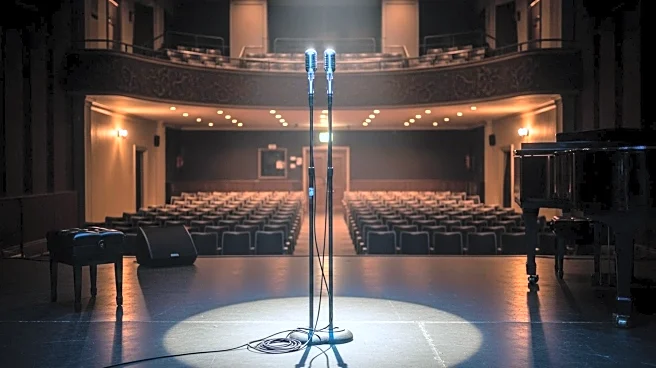What's Happening?
The Promontory, a well-known music venue located in Hyde Park, Chicago, is set to close after 11 years of operation. The announcement was made on Instagram and confirmed by venue manager Mario Smith. The Promontory is part of the hospitality collective '16” on Center,' which includes other popular venues such as The Empty Bottle and Salt Shed. The closure marks the end of an era for the South Side music scene, which has been a vibrant part of Chicago's cultural landscape. The venue has hosted numerous events and performances, contributing significantly to the local entertainment industry.
Why It's Important?
The closure of The Promontory represents a significant loss for the local music and entertainment community in Chicago. As a venue that has supported various artists and events, its absence may impact local musicians and performers who relied on it for exposure and gigs. Additionally, the closure could affect the economic activity in Hyde Park, as venues like The Promontory attract visitors and contribute to the area's vibrancy. The decision may also reflect broader challenges faced by entertainment venues in maintaining operations amidst changing economic conditions and consumer preferences.
What's Next?
While the immediate future of The Promontory is its closure, the broader implications for the local entertainment scene remain to be seen. Other venues within the '16” on Center' collective may experience increased demand as artists and patrons seek alternative locations for performances. The closure might also prompt discussions among local stakeholders about supporting and sustaining cultural venues in the area. Community leaders and business owners may explore initiatives to preserve the cultural heritage and ensure continued opportunities for local artists.
Beyond the Headlines
The closure of The Promontory could spark conversations about the sustainability of cultural venues in urban areas. It highlights the challenges faced by entertainment businesses in adapting to economic pressures and evolving consumer habits. The situation may encourage policymakers to consider measures that support cultural institutions, recognizing their role in enriching community life and fostering local talent.









